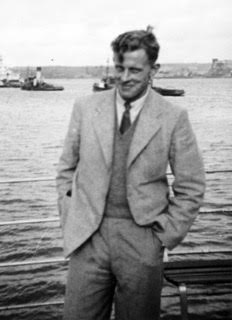A Doll for December
Dear little Lithuanian
I do adore your dress.
Your eyelashes are charming
And excite me, I confess.
But when I read your history,
And learnt from whence you came,
It filled me both with sadness
And a little bit of shame.
© Michael Downes 2015
A new month is approaching and I intend
to keep to my self-imposed promise that I would display each month an image
relating to Fairlynch Museum.
Not just on my blog, but on our
smart new noticeboard, kindly provided by Honiton-based firm Duralife Windows.
Just as I was scratching my head about what to choose next, Sue Morgan, our
Toys, Dolls and Bears expert at Fairlynch kindly gave me some information about
a Lithuanian doll in the Museum’s collection.
I thought the story behind it was
so sad that I was moved to write the above poem – well, my friend Annie calls
my efforts doggerel – so, OK – ‘verse.’
Here’s the story, based on
information given by the donor, Miss Barbara Blathwayt, of Sunny Bank, East
Terrace in Budleigh Salterton.
“It was given to me by a Lithuanian
woman when I was serving with the Relief team in Germany in 1945-46,” wrote
Miss Blathwayt.
“The displaced people who we
worked with in the transit camp made dolls etc which they kindly gave to us.
The doll was made from munition bags which they washed and dyed presumably, and
embroidered.”
“They were all extremely
patriotic and keen to preserve their identity.”
And no wonder I thought,
reflecting on how at the moment of my birth, Europe was in turmoil after WW2
with floods of refugees pouring this way and that.
Like Poland, Lithuania has had a
raw deal in its history, being occupied at various times by more powerful
neighbours. Grabbed by the Soviet Union
in 1940, it was then taken over by Nazi Germany before being reoccupied by the
Russians. Presumably the Lithuanian
woman who made the doll was never able to return to her homeland.
But on 11 March 1990, it became
the first Soviet republic to declare itself independent, resulting in the
restoration of an independent State of Lithuania.
Their aunt Joyce Dennys (1893-1991)
was already settled in Budleigh as the wife of the town’s GP when Jean and her
sister moved here in 1953. Their father the Revd Francis Linley Blathwayt was a
parson-naturalist who held the living of Melbury Osmund in Dorset from 1916 to
1929. Twenty-two volumes of his diaries are held by Dorset County Museum. He
and his wife eventually settled at Dyrham Rectory in Gloucestershire.
Jean Blathwayt wrote a total of
15 books for children with titles like Jo’s
Neighbours, Peter’s Adventure and
Lucy’s Last Brownie Challenge. Some
of them have recognisable links with the Budleigh area.
Maybe among her papers was the
manuscript of a children’s book about the Lithuanian doll. What would she have
called it?
Any Lithuanians out there? What
name should Fairlynch Museum give to its Lithuanian doll?
*
Uh, uh… Another birth centenary for the Museum to mark!







Comments
Post a Comment